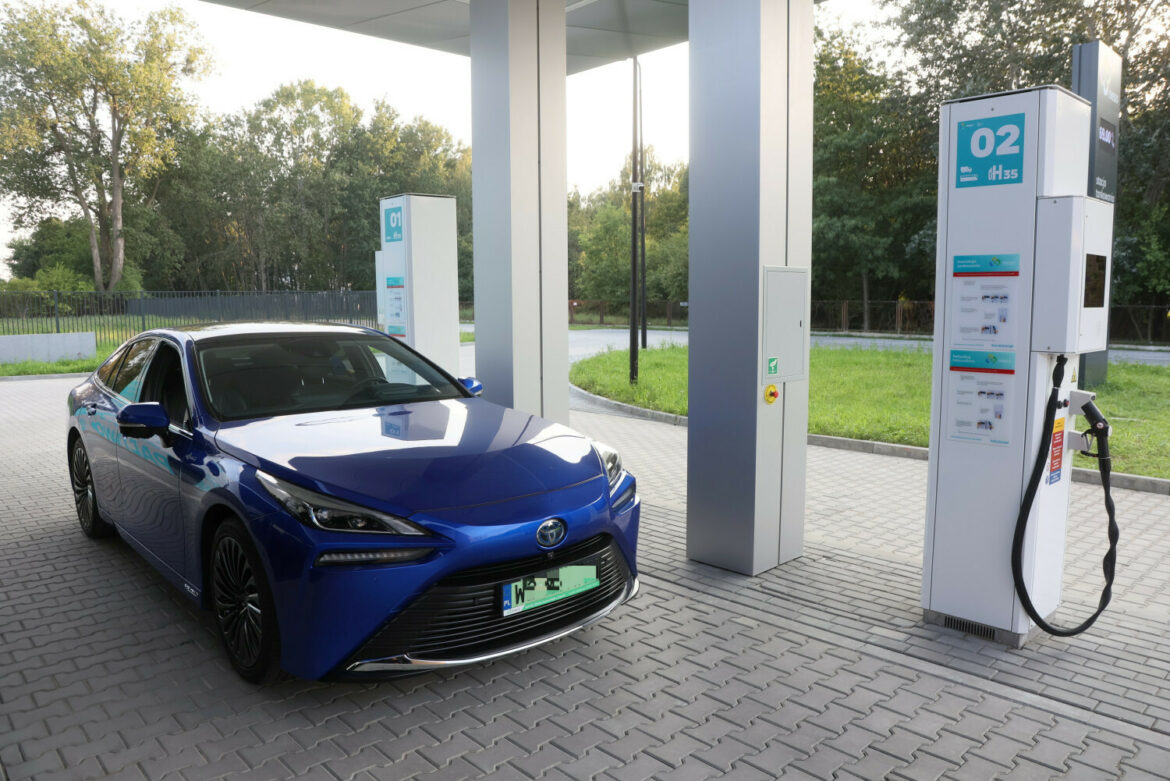The Polsat Plus Group and the ZE PAK Group have launched the first hydrogen refuelling station in Silesia and the second in Poland for cars and buses. The investment is located in Rybnik, which is the leader of the green energy transition in Poland.
The network of hydrogen refuelling stations of Polsat Plus Group and ZE PAK is being developed under the NESO brand. The name is derived from the first letters of Nie Emituje Spalin, Oczyszczam (I don’t emit fumes, I purify). NESO stations are currently among the most modern hydrogen refuelling stations in Europe. They will be able to be used by Rybnik’s public transport buses as well as by all users of hydrogen-powered cars.
The station will be able to refuel 20 NesoBus hydrogen buses, which are already starting to be used by the citizens of Rybnik. The city is one of the leaders of the green energy transition in Poland, and the buses and refuelling station are elements of the emerging Rybnik Hydrogen District.
Buses and cars powered by green hydrogen do not emit exhaust fumes, and additionally clean the air. They do not emit toxic substances – CO2, nitrogen oxides and particulate matter, especially PM 2.5. The NESO station is largely self-sufficient in energy. Installed 19 kW solar panels supply electricity to the station and energy storage facilities can store surplus energy.
The station is fully self-service, a dispenser with a pressure of 700 bar is designed for refuelling cars and one with a pressure of 350 bar for buses. Hydrogen is delivered to the station by hydrogen vans, which carry up to 1,000 kg of gas at a time.
Refuelling at a hydrogen station is almost the same as at a petrol station. The nozzle is removed from the dispenser, inserted into the car or bus, the button is pressed, and refuelling begins. It takes just a few minutes to fill up the tank of a car, and less than a quarter of an hour for a bus. Hydrogen cars can cover over 600 km on a single charge.
Arkadiusz Słomczyński





